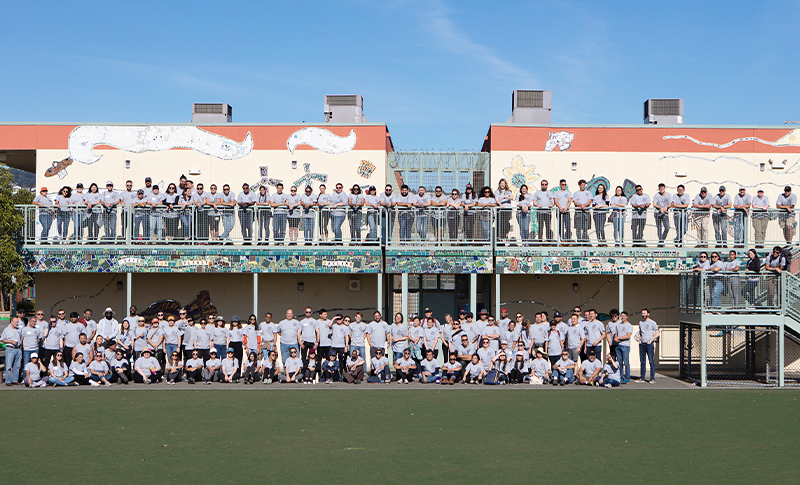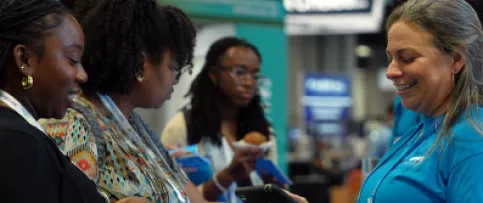The opinions expressed in this commentary are solely those of the author and do not necessarily reflect those of the National Council of Architectural Registration Boards (NCARB).
Obtaining a license is one of the largest leaps an architect will take in their career. It can be an arduous and sometimes intimidating process, but the payoff can give you the power to not only pursue your craft to its fullest potential, but also to contribute to the built world around us. Like many architects, I attribute my success in earning my license through the knowledgeable guidance and unwavering support of my mentors.
Finding the Right Mentor
For young architects, it’s important to find the right person (or persons) who is both passionate about their work and willing to share their knowledge and expertise. Watching and learning from others is the best way to grow in this profession. Every experience you encounter presents a new opportunity, and instructing young staff members to recognize these occasions is as important as the opportunities themselves.
I experienced mentorship from my first day at MBH Architects. The team I worked with early on used every interaction to teach me something new, whether it was learning industry standards and best practices, or interacting with clients and consultants to form a cohesive workflow. My project manager did not shy away from providing opportunities to teach me about aspects of the industry that young professionals are not typically exposed to, such as budgeting and schedules. I was even included in lunch meetings with clients when the setting was right. The concept of “you’ll learn this later” never came into play, which I believe is an indication of a strong mentorship.
How Your Mentor Can Help with Your Licensure
One of my first mentors at MBH was very influential in my ability to recognize and capture every opportunity to learn. After lengthy meetings with consultants, she often asked me to explain one or two new things that I had learned, and then had me consider how I would go about teaching that to someone else. She also prompted me to answer my own questions, helping me realize I may already know the answers and encouraging me to find them for myself.
Don’t fear not knowing the right answer. Your mentor should prepare the right questions and then ask how you came up with your conclusion, explaining the “why” behind the “what.” If you and your mentor aren’t in the habit of doing this, try talking through your reasoning with them. This ritual of questions teaches you to have confidence in your own abilities and helps expand your knowledge of architecture organically. This concept was crucial in supporting me through my journey of completing the Architectural Experience Program® (AXP®) and studying for the Architect Registration Examination® (ARE®).
Getting Involved Within Your Company
At MBH Architects, we’re lucky enough to have quite a few programs that help to guide young, aspiring architects through the licensure process. These programs not only provide support to fledgling architects, but also provide them with first-hand industry knowledge, hands-on experience, and opportunities for growth and visualizing a career path. I recommend working with leadership to start supportive programs like these at your own firm.

MBH Licensure Practice Group: At its origin, the group’s leaders developed a network of knowledgeable, well-rounded materials—and more importantly, a support system for those pursuing licensure. By establishing mentor relationships, experiential learning opportunities, study groups, and accessible study guides, the firm’s students are better prepared for exams.
Framework: MBH Architects’ Continuing Education Practice Group organizes seminars, mentorship programs, and classes for aspiring and veteran architects alike. In 2018, the group formalized Framework, a mentorship program rethinking the on-the-job learning process. Over the course of a six-month semester, participants meet with their mentor to discuss real examples of obstacles they will face during the architectural design process.
During seminars, students use real scenarios to fill in the gaps, advancing their understanding of building codes and the constructability of their drawings. By investing non-billable time into the professional development of these individuals, they can confidently push forward on billable projects, saving the client time and money and increasing efficiency. In addition, by exposing upcoming leaders to challenges they will face, students can proactively address them, minimizing future hindrances and discovering new potential in the process.
Through these programs, architecture students can get involved and learn more about the industry ahead of taking their licensure exams. It’s always a wild ride to licensure, and it’s nearly impossible to finish the process solo. By way of compassionate and patient mentorship experiences, new architects will establish the bandwidth to explore their interests further and develop the skills needed to achieve success within this career.
Architect Lilly Sippel works at MBH Architects as a Job Captain and Associate. Check out some more shots of MBH's 2019 Impact Day below.



